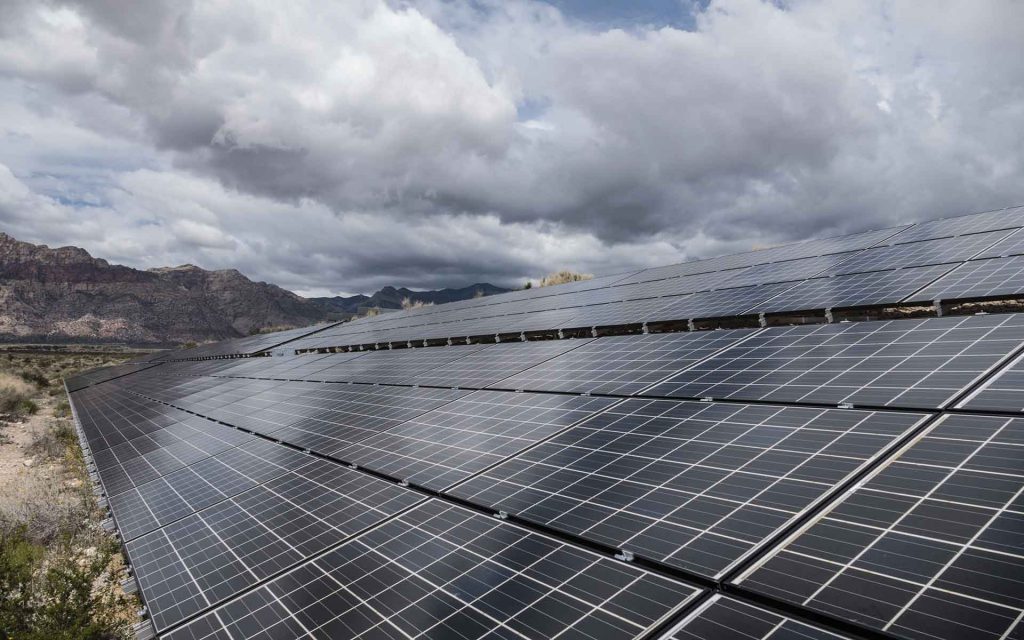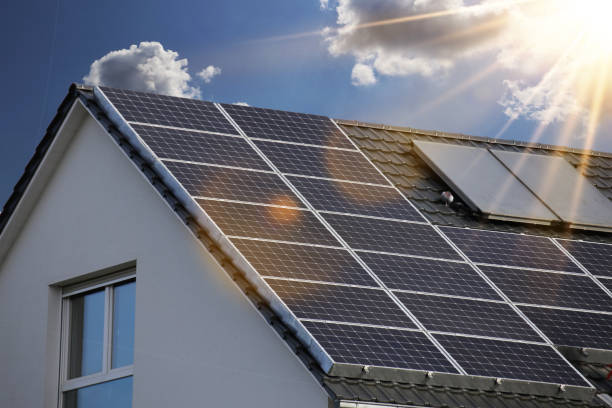Last update July 10th, 2024 at 06:10 pm
Australian homeowners and businesses are investing in solar energy systems at a very rapid pace. Solar energy is not only reducing your carbon footprint but also your utility bills. But do solar panels work on cloudy days?
In addition to the environmental and economic benefits Australians have access to great rebate schemes that make the investment more affordable.
But if you are considering going solar, you might also have some concerns. As you might know, solar panels generate electricity from sunlight. Even though Australians are spoiled when it comes to sun and warm temperatures, we can also expect cloudy days and rain.
So, what happens when the sun is “blocked” by clouds? Will solar panels work on cloudy days?

The mechanism behind solar power systems
Solar power panels have the ability to convert sunlight energy into electricity, in most cases by using photovoltaic (PV) systems. The PV cells in the panels convert sunlight into electric energy. This process is referred to as the photovoltaic effect.
A solar panel typically consists of a number of photovoltaic cells. These cells can be considered small “sandwiches” consisting of two pieces of silicon or other semiconducting materials.
Particles of the sunlight, also known as photons, knock the electrons away from the atoms in the solar cell material. This process generates an electricity flow of direct current (DC).
The direct current is sent to an inverter device. The output will be alternating current (AC) which is usable energy.
So, can solar panels work on cloudy days?
As you might understand, solar energy systems can produce electricity when photons from the sunlight hit the solar panels. No sun means no electricity production. This is the reason your solar system will not produce energy during the night.
But what about clouds? In most cases, solar panels will also work during cloudy weather conditions. However, you should not expect the solar energy output to be as high as during sunny weather conditions.
Energy production will usually drop significantly when it is cloudy. But to what degree? This will depend on the cloud type.

How can different cloud types affect the energy output from solar panels on cloudy days?
An Australian research team tested the solar panel output for different cloud types. By monitoring different solar panel systems in Sydney, Adelaide, Melbourne and Brisbane, they were able to see how different cloud types affect the energy output.
However, it is difficult – if not impossible – to determine the exact effect different cloud types have on solar power production. The reason for that is the fact that the researchers were not able to determine the density, cloud cover and other factors accurately.
The results from the study made it clear that different cloud types are likely to have a certain effect on the power output.
High clouds
If high-level clouds like cirrus, cirrostratus or cirrocumulus are dominating the sky, this will usually have an insignificant negative effect on the solar energy output.
According to the researchers, you can expect your solar panel system to produce nearly as much power as it would during a sunny day.
Middle clouds
In overcast weather conditions where cloud types like altostratus, nimbostratus or altocumulus dominate the sky, you can expect a 50% output reduction from your solar system.
Low clouds
With low-level and dark clouds like stratocumulus, cumulus, status or cumulonimbus, the solar energy output can be reduced by as much as 70 to 90%, compared to a sunny day.
So, during thunder, lightning and heavy rain, it might be necessary to use energy from the grid. If you have solar batteries, you can use excess energy that has been stored.

How can solar panels work on cloudy days?
When sunlight hits the solar panel, it generates electricity. If the weather is cloudy, the panels will also produce energy. But how?
Diffuse solar exposure can be described as all energy that hits the solar panel surface except from direct solar energy. Some photons will be reflected by the clouds and sent back up into the sky. But some photons will also penetrate the clouds and allow solar panels to still produce energy.
In the case of high clouds, fewer photons will be reflected back into the sky, than in the case of low clouds.
Are solar panel systems still worth it?
Yes! Australia is luckily one of the sunniest places on earth. Because of this, it is also one of the best countries to live in if you consider going solar. On a particularly rainy, foggy or cloudy day, you might lose a couple of kWh throughout the day.
But in the long term, a solar panel system will be a great investment for most Australians. And remember, if it is cloudy and your system does not produce enough power, you can always get power through the grid (if you have a grid-tied system).